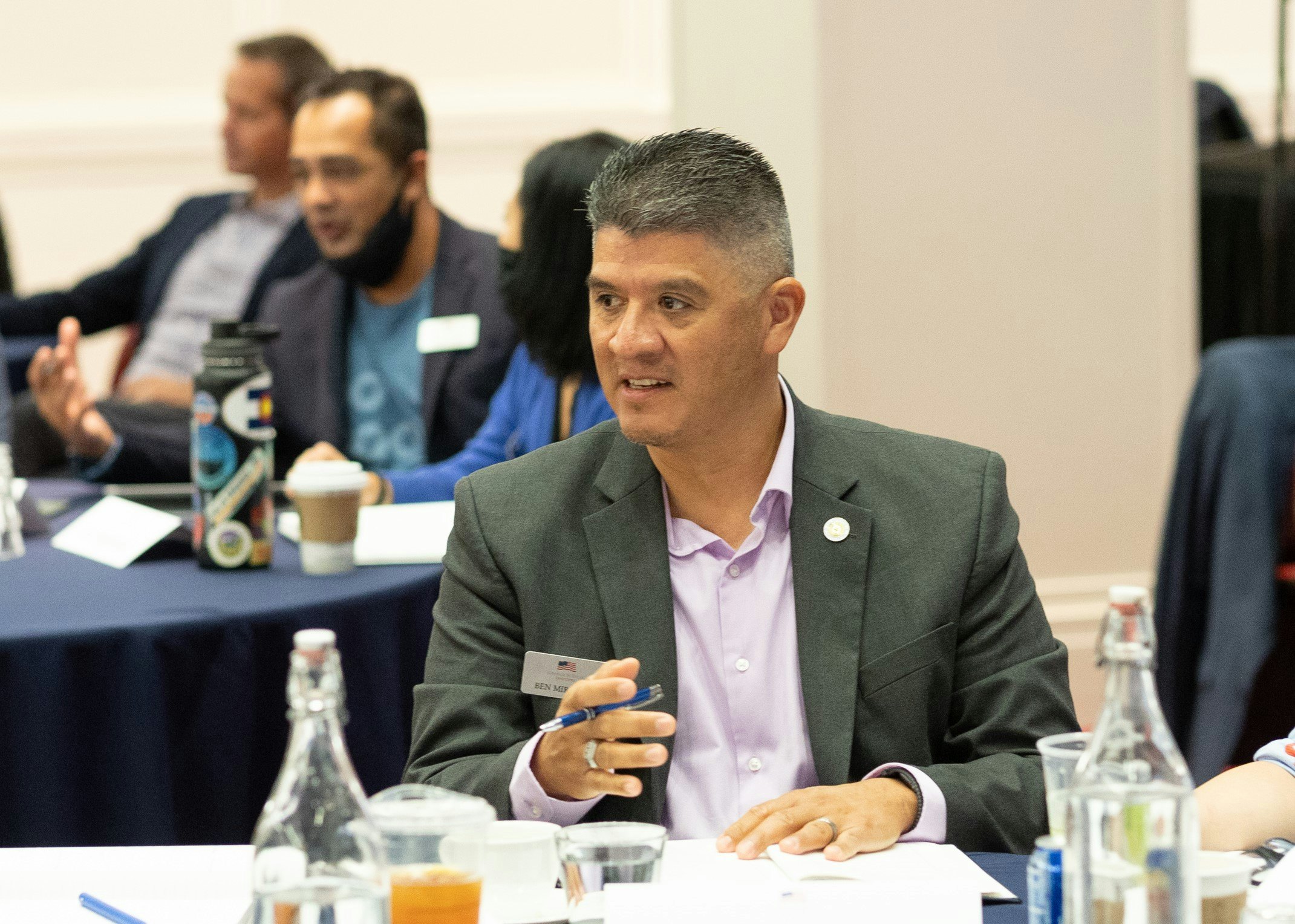Stand-To Veteran Leadership Program Scholar LeNaya Hezel discusses new research findings, which are changing the narrative of how historically Black colleges and universities are serving the broader veteran and military-connected community.
The first in-person module of the George W. Bush Institute Stand-To Veteran Leadership Program’s Class of 2021 has the distinction of being the first time a VLP cohort has gathered when our country wasn’t at war. As we watched the humanitarian crisis unfold in Afghanistan, we wrestled with what serving the military-connected community will look like moving forward.
My aha moment occurred when I had the opportunity to collaborate with Barrett Y. Bogue, a VLP Class of 2019 alum and Evocati President and Founder, whose organization has been commissioned by Fayetteville State University to research and analyze military-connected student services among four-year historically Black colleges and universities (HBCUs).
Evocati’s peer analysis identified an important gap: HBCUs have been missing from our national dialogue until recently.
Historically, HBCUs have been a destination for preparing officers of color through ROTC programs. For so long we have overlooked pockets of our society that are locally providing services to a diverse all-volunteer force. Therefore, we must find ways to shift the narrative of how we are intentionally serving the military-connected community using three objectives:
- We need to better understand who is providing that support and from where at a local level to empower diverse communities of service members, veteran, and their families.
- We must be more strategic about identifying intersectionality and how other identity-based resources support the military-connected community in higher education.
- We must expand and diversify voices at all leadership levels to include historically underrepresented expertise.
The Evocati-FSU report is a genuine gift to peer HBCUs, the overall higher education community, and the veteran-supporting community.
The report used open-source data to identify the number of military-connected students among peer HBCUs, dedicated services and resources, and overall academic and return on investment outcomes among all enrolled undergraduate students. The analysis allowed FSU to pinpoint areas of strength among its peers and determine opportunities for improvement.
FSU’s leadership went beyond Evocati’s performance outcome measurement tool, academic and programmatic partnerships, and marketing recommendations. Starting in fall 2022, FSU will cover all tuition for servicemembers, veterans, military spouses and children, and ROTC cadets. The data in the report enabled the leadership to connect graduation rates to the complexities of in-state and out-of-state tuition costs with a transient population.
Before becoming a public sociologist, I served as a military-connected student advocate in higher education. For more than a decade, the national dialogue on supporting military-connected students centered around pathways to selective institutions, creating “military friendly” campus toolkits, and empowering students to make informed decisions on where to pursue their educations. Additionally, scholars were publishing unprecedented research on the utilization of the Post-9/11 GI Bill, transitions from the military to the classroom, destigmatizing disabilities and mental health services, cultivating student-led leadership culture, and serving women veterans.
But the world has changed.
A generation of servicemembers will transition to civilian life with questions about their service in the aftermath of the Afghanistan withdrawal.
Military families will continue to uproot and relocate every two to three years and be separated from loved ones in response to military orders. The need and responsibility for our Nation to serve and support the military-connected community will continue.
It’s on us to reframe the conversation for the public to connect how they play a role in increasing the impacts in serving today’s military-connected community. HBCUs are a good place to start.






























